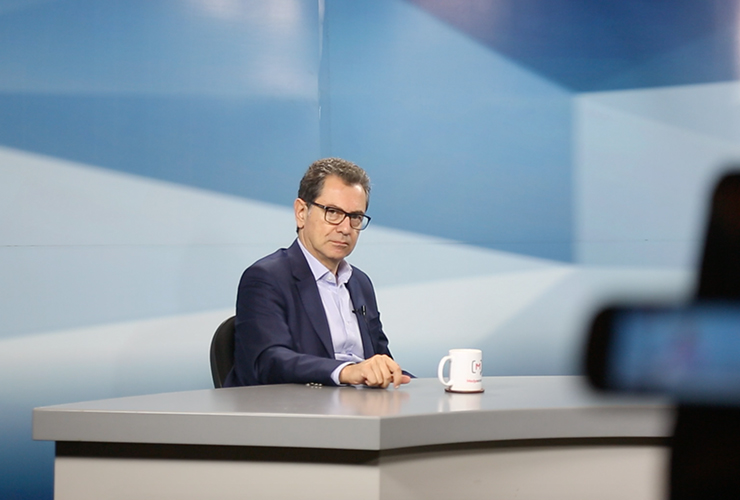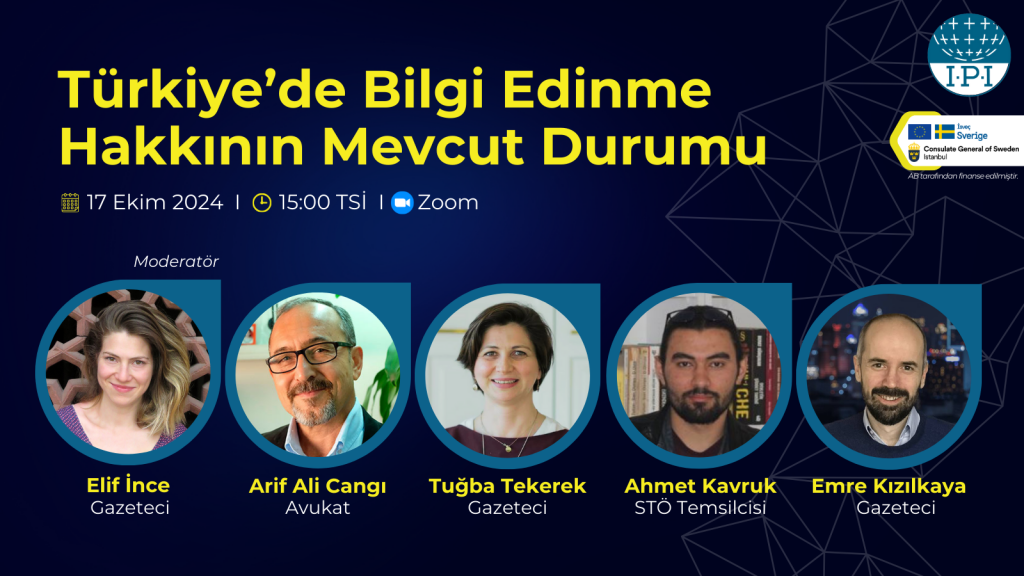The International Press Institute (IPI) talked with IPI Executive Board member and Turkey National Committee chair Kadri Gürsel following the re-run of Istanbul’s mayoral election on June 23, which was won by opposition candidate Ekrem İmamoğlu – despite the AKP party’s near complete control over traditional media in Turkey.
Gürsel was previously detained for 11 months for his journalistic work as part of the Cumhuriyet trial together with 17 defendant colleagues and sentenced to two years and six months in prison in April 2018 on the charges of “aiding a terrorist organization without being a member”. He was briefly jailed again on May 29 before being released on the same day to serve out the remainder of his sentence on probation.
IPI spoke to Gürsel about the significance of İmamoğlu’s victory for press freedom and democracy in Turkey.
IPI: In general, how do you evaluate the media coverage prior to the 23 June local election in Istanbul? How free and fair was this period for the press?
KADRI GÜRSEL: The most important thing between the period of March 31 and June 23 elections was to see that pro-government media had lost its great impact. Today, the government has 90 percent of the media under its direct or indirect control. One could guess that a government holding the full power of the media in its hands would win this election. However, just the opposite happened. This election result showed that the ruling party can no longer benefit from the established media and that its years-long policies related to the media are no longer effective. The government today controls the sector of the media that has the least impact on the political agenda.
As a second observation, this election showed that the remaining independent media and digital media platforms had a greater impact compared to their small size. The number of views and clicks produced by some of these platforms have reached enourmous levels. Various media organizations, including IPI’s 2016 Free Media Pioneer award recipient Medyascope, carried out an important function in providing the public with balanced and factual information.
A third important thing to underline for this period is the live debate between the two mayoral candidates that took place on June 16 – the first such debate in 17 years of AKP rule. Although it is quite difficult to actually call what happened a “debate” – the whole format and structure was planned to avoid the candidates discussing with each other – people still had a chance to compare and contrast the two candidates, which is an important contribution to democracy. However, the reason behind the AKP’s agreeing to have this debate was not about the government’s sudden realization of the importance of democracy, media freedom or freedom of expression. No. This was a pragmatic approach on the side of the government, which was aware it was falling behind its rival in the election. And yet, this debate still made the AKP candidate lose standing.
IPI: What would you expect now as a change in the municipal policies and funding on the media? A fair distribution of the funds or budget allocated to the press organizations within the municipality (if any) could be expected?
KG: Municipalities in Turkey could produce new models in theory to repair the damage that has been done by the AKP for many years. Therefore, we have a right to expect municipalities now run by the opposition parties to have a more idealistic approach regarding independent media. Because, right now, the independent media is exposed to a heavy embargo on advertisement and constant governmental threats. Under these conditions, it is highly difficult for media organizations to produce quality content and create new business models. This gives the municipalities a crucial role in supporting democratic institutions, free media and expression. But they should do this without damaging the independence of the media.
In addition, there’s the strong perception that the municipality funds, especially for advertisements, are being disproportionately distributed in favor of pro-government media. Now, with the change of administration, this would mean a great loss of income for these media. Now municipalities have to distribute the advertisements fairly.
IPI: Does the election have a positive impact on independent journalism at city and country-wise? What could be the effect on journalists’ work in an environment of a long-term fear and intimidation?
KG: The most essential issue here is the government’s acknowledging the loss of power and its ability to manage the momentum of its decline well. What the government should realize now is that they don’t have the capacity to maintain power or to restore the strength they lost. If the government continues to apply the same suppressive policies such as using judiciary as a weapon to jail journalists, instrumentalizing it for its own benefits; or creating this environment of fear and terror to silence people from saying their own opinions; or undermining and trying to destroy journalism – then this would not match the government’s own reality.
In response to this historical defeat, the most realistic reaction for the AKP would be to calibrate its policies and position accordingly. If the party does so, it might create the opportunity for journalists to breathe. This would conclude with a slight stretching of the greatly restricted space. This defeat of the AKP would also provide the journalists with the necessary encouragement to report critically and share their opinions.




